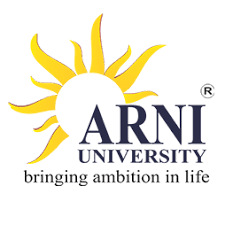M.Sc. Cell and Molecular Biology graduates can pursue careers as research scientists, laboratory managers, genetic counselors, and biotechnologists. They work in research institutions, biotech companies, healthcare, and academic institutions, driving innovations in cellular and molecular biology.
Career & Job Opportunities for M.Sc. in Cell and Molecular Biology Course
Cell and Molecular Biology is a highly specialized and rapidly evolving field of science that delves into the intricacies of living organisms at the cellular and molecular levels. A Master of Science (M.Sc.) in Cell and Molecular Biology is a postgraduate program that offers students in-depth knowledge and practical skills in this cutting-edge field. In this article, we will explore the M.Sc. Cell and Molecular Biology program, the career opportunities it presents, and the potential job prospects for graduates. An M.Sc. in Cell and Molecular Biology is typically a two-year program designed to provide students with a comprehensive understanding of cellular structures, processes, and molecular mechanisms. The curriculum covers a broad range of topics, including genetics, genomics, cell biology, biochemistry, molecular biology techniques, and advanced laboratory skills.
Students in this program often engage in research projects, allowing them to apply their theoretical knowledge in a practical setting. These projects can encompass a wide array of subjects, from cancer biology and genetic engineering to neurobiology and microbiology. Such hands-on experiences are invaluable in preparing students for careers in research, academia, and various industries.
M.Sc. in Cell and Molecular Biology Career Opportunities
Graduates of M.Sc. Cell and Molecular Biology programs possess specialized skills that make them highly sought after in a variety of fields. Here are some of the prominent career paths available to them:
-
Research Scientist: Many graduates pursue careers as research scientists, working in universities, research institutions, or biotechnology companies. They conduct experiments, design studies, and analyze data to contribute to our understanding of fundamental biological processes and to develop new therapies or technologies.
-
Genetic Counselor: Genetic counsellors provide information and support to individuals and families who may be at risk for genetic disorders. They help clients understand genetic test results, assess hereditary risks, and make informed decisions about their healthcare options.
-
Clinical Research Associate: Clinical research associates (CRAs) oversee clinical trials for new drugs, medical devices, or treatment protocols. They ensure that trials are conducted ethically and in compliance with regulations, collecting and analyzing data to evaluate treatment safety and efficacy.
-
Biotechnology Specialist: The biotechnology industry relies heavily on experts in cell and molecular biology. Biotechnology specialists work on developing new drugs, genetically modified organisms, and molecular diagnostic tools, among other applications.
-
Bioinformatics Analyst: Bioinformatics analysts use computational techniques to analyze and interpret biological data, particularly in the fields of genomics and proteomics. They play a crucial role in deciphering the vast amounts of data generated by modern molecular biology research.
-
Pharmaceutical Researcher: Pharmaceutical companies employ researchers who investigate molecular targets for drug development. They work to identify and develop compounds that can be used to treat diseases at the molecular level.
-
Academic Professor: Graduates with an interest in teaching and academia may pursue careers as professors or lecturers at universities and colleges. They can contribute to the education and training of the next generation of scientists while conducting their own research.
-
Biomedical Consultant: Biomedical consultants provide expertise to healthcare organizations, research institutions, or biotechnology companies. They may offer guidance on research strategies, regulatory compliance, or the development of new biotechnological products.
-
Quality Control Specialist: Quality control specialists ensure that products in the biotechnology and pharmaceutical industries meet stringent quality and regulatory standards. They perform inspections, audits, and tests to maintain product safety and consistency.
-
Medical Writer: Medical writers play a crucial role in communicating scientific findings and research results. They write research papers, grant proposals, regulatory documents, and other materials that convey complex scientific information to a broader audience.
M.Sc. in Cell and Molecular Biology Job Opportunities
The job Opportunities for graduates with an M.Sc. in Cell and Molecular Biology are promising and continue to expand for several reasons:
-
Biomedical Advancements: Ongoing breakthroughs in cell and molecular biology, including gene editing technologies like CRISPR-Cas9 and advancements in genomics, drive the demand for professionals with specialized knowledge in these areas.
-
Biotechnology and Pharmaceutical Growth: The biotechnology and pharmaceutical industries rely heavily on the expertise of cell and molecular biologists for drug discovery, development, and quality control. As these industries continue to expand, so do job opportunities.
-
Healthcare Innovation: Cell and molecular biology play vital roles in advancing healthcare through personalized medicine, precision diagnostics, and targeted therapies. This results in increasing demand for experts in these fields.
-
Genomic Medicine: Genomic medicine, which involves using an individual's genetic information to tailor medical treatments, is becoming more prevalent. Graduates can work on the forefront of this emerging field.
-
Research Funding: Governments, private foundations, and companies continue to invest in biomedical research. This funding supports research positions, making it easier for graduates to find opportunities.
-
Public Health Concerns: The COVID-19 pandemic has highlighted the importance of molecular biology in infectious disease research and vaccine development. This has further underscored the significance of cell and molecular biologists in public health.
 2 Years
2 Years
 Post Graduate
Post Graduate
 Science
Science














 back
back

